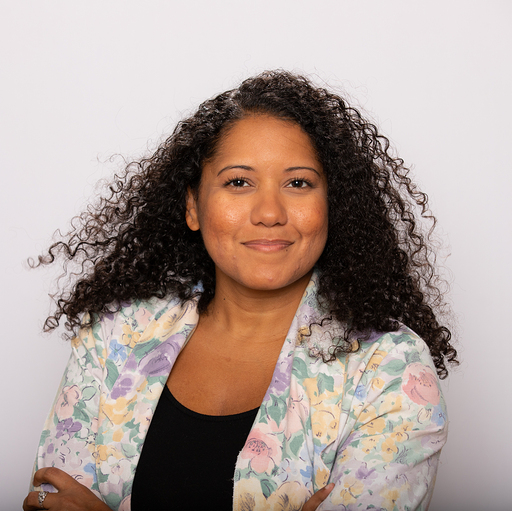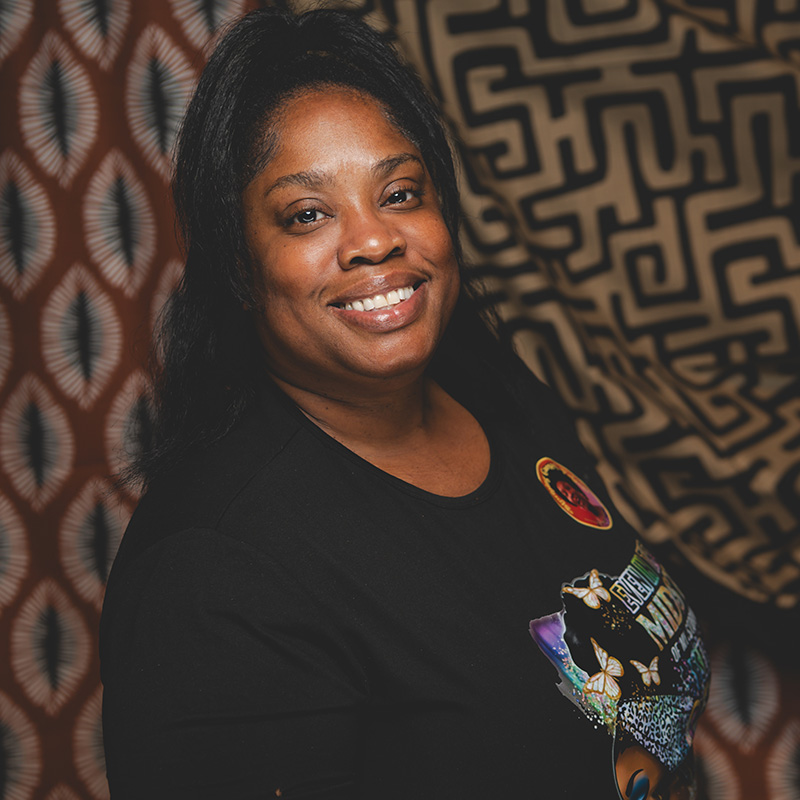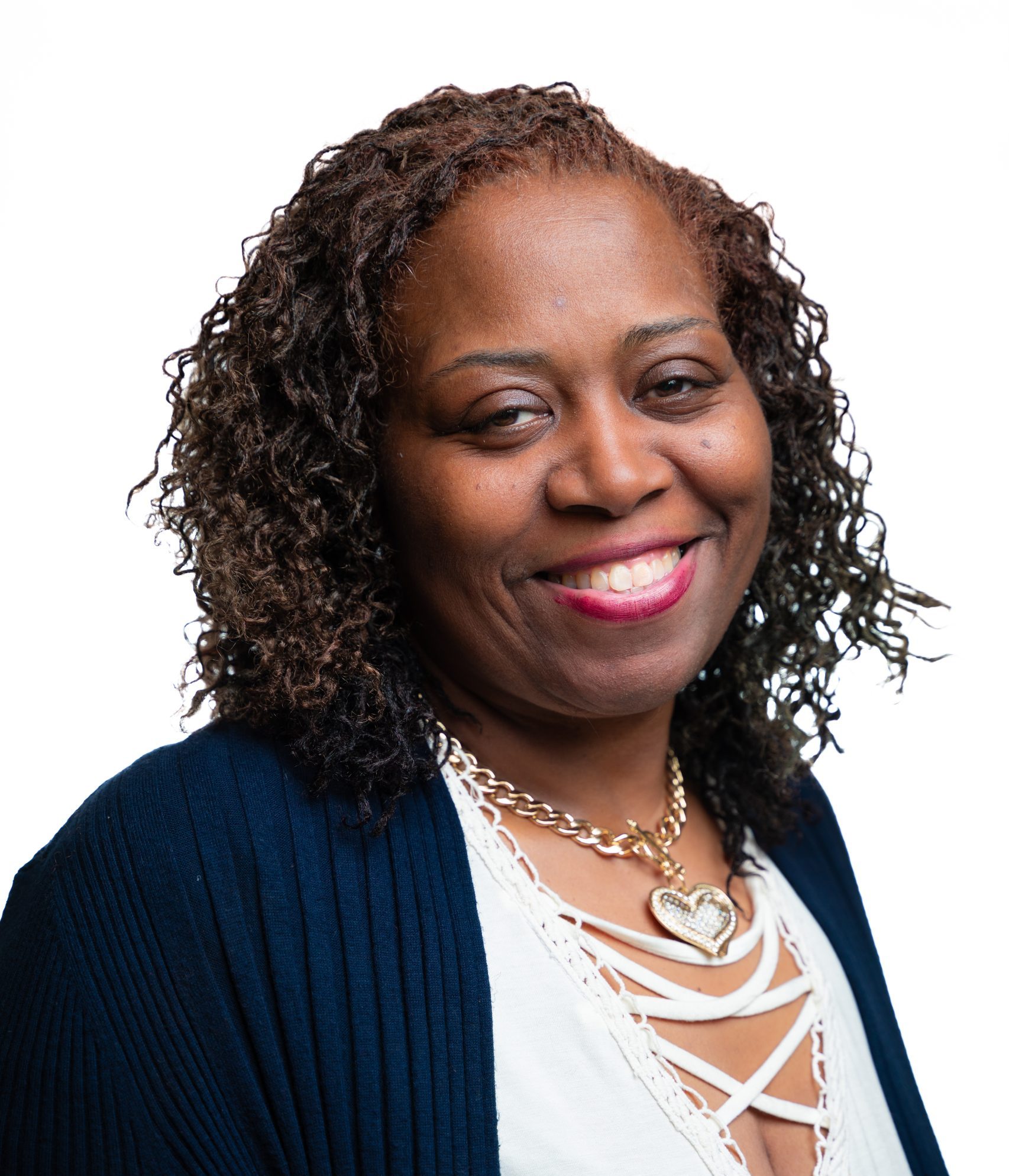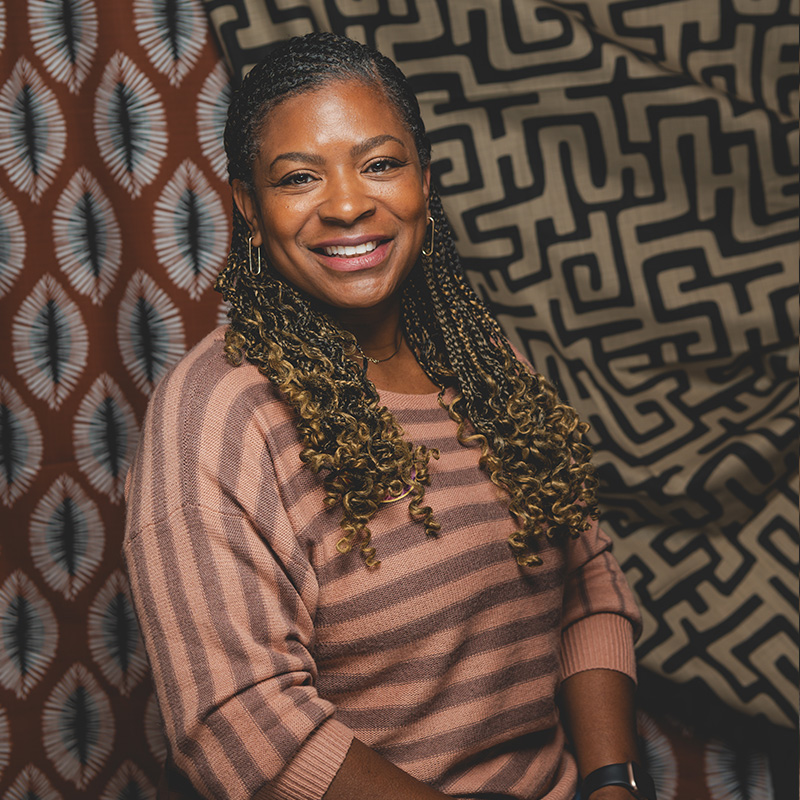
Hillary Holley
Hillary Holley
Speaker 1 (00:01):
Okay, here we go. All right. So I’m just going to say our little intro here. Okay. Okay. Well, thank you so much for sitting with me today. This is Hazel Gurland-Pooler on March 11th, 2024 in Tucson, Arizona recording this oral history as part of the Storming Caesars Palace Our stories Our Justice project in collaboration with Care in Action. So Hillary, tell me your full name.
Speaker 2 (00:30):
My name is Hillary Holly.
Speaker 1 (00:32):
Okay. And tell me about why we’re here today.
Speaker 2 (00:41):
We are here today because, so Care in Action organizes black and brown women who not only depend on care, so meaning childcare, home care, so we can show up for ourselves and our families, but we’re also the ones that are providing the care. And when we think about the workers, so the house cleaners, the home care workers, the childcare workers
Speaker 2 (01:15):
Who are primarily black and brown women, the average income is $23,000 a year. And so when I first saw the film Storming Caesars Palace where Ms. Ruby organized with domestic workers and hotel workers, it was just such a clear parallel that the freedom struggle they were fighting for then you can compare it to now. And so I think that this collaboration is just divine and it makes sense. And we got to actually screen this in DC for 450 care workers and they still mention it to this day. And so just providing any space where domestic workers and home care workers can see themselves and not only see themselves but get huge, monumental wins is just critical. So that’s why we’re
Speaker 1 (02:17):
Here. Yes, thank you. I know it’s very exciting. I’m so happy to be able to share the film with people who are essentially in and see the, not just see themselves, but see the history and where the movement started in this building and all the work that everyone is still doing. Okay. So is there an ancestor or a woman who inspires you today?
Speaker 2 (02:40):
There’s so many. I think one woman who’s been sitting on my soul is, her name’s Ms. Helen Butler. I call her the Queen of voting rights in Georgia, but I would actually say she’s just a queen. So Ms. Helen Butler runs the Coalition for the People’s Agenda. It was started by Joseph E Lowry. And so she worked really closely with him to register people to vote advocate in the Capitol, specifically in Georgia’s rule areas. And Ms. Helen also was one of the first black women to go to UGA. She helped start the first Delta chapter. So I’m sure some soros will be listening to this one day. And Ms. Helen just is a guiding light. I like to say she’s an elder of the movement. And whenever I have hard days and need guidance, she’s always there. She’s always there. And I truly think that if it were not for Ms. Helen, I don’t know where this country would be, because the work that went in in 2020 as to stop the Trump coup in Georgia and deliver a democratic trifecta, that all came from decades of her work. And so yeah, Ms. Helen Butler’s my hero.
Speaker 1 (04:21):
And it sounds like her work really inspires the work that you do.
Speaker 2 (04:24):
Always, always, always just so grounded. And she carries the same message no matter what room she’s in. So I’ve been in rooms with her in rural Georgia, and I’ve also been in private meetings with her, with Vice President Kamala Harris. And she just shows up the same way and really remembers our communities back home, which are rural black folks in the South, and how, unless the policies that we’re fighting for and then celebrate unless they’re felt in the communities where Ms. Helen comes from and myself, then we still have more work to do. So yeah, she’s just such an inspiration.
Speaker 1 (05:16):
That’s great. You sort of touch upon this sort of being where you come from as well. You share a story about your growing up or someone in your family or something like that, that sort of also inspires the work that you do today.
Speaker 2 (05:36):
So when I first came into the care movement, I honestly had to learn a lot about the policies just to be blunt. And so I learned that some of the real systemic issues that continue to cause generational poverty and how the lack of paid leave for black and brown women who do domestic work or lack of overtime protections. If my family would’ve had access to that, my life could be different because, so my great-grandmother was a housemaid. Her name was Ms. Hazel, and she helped raise my dad and his eight siblings. And my grandma, my grandma Bebe, worked at a hotel. She cleaned hotel rooms. And so you’ll see story of Storming Caesars Palace, Care in Action, and my personal story, it’s just all interconnected. And so seeing my learning about the history of the exclusions of domestic workers, it helped me realize the struggles that I went through with my family are connected. So I grew up really poor in Lawrenceville, Georgia. My parents both worked in warehouses, really struggled to pay with daycare. So I remember at the end of the month when they had to do inventory, they would pick me and my brother up from school and we would play in the warehouse until midnight sometimes, just because there wasn’t any childcare around.
Speaker 2 (07:27):
I’ve felt that no matter how hard my parents worked and these working conditions that are just awful and not being able to make ends meet, but we had more than what my parents had. So anyways, I don’t know if I’m making sense, but that’s what brings me here is I think I feel like I’ve lived through the care crisis and the care crisis has been a part of my family for generations.
Speaker 1 (08:02):
What always shocks me is that it feels like things haven’t really changed. The more they evolve, the more they stay the same, they remain the same. And things we’re still fighting for so many of the same things as we were before.
Speaker 2 (08:17):
This is,
Speaker 2 (08:20):
I will say things have gotten better, but the struggle shows up differently. So for example, right now, a big moment actually at the Care Summit where we had 450 care workers was when President Biden signed the executive order. And just to be honest, sometimes executive orders don’t mean shit. They’re just like, oh, it’s a press release, whatever. But this one actually had teeth, one of the teeth that it, well, it was like over 50 directives. They went to every single agency saying, if you are using this type of funding, it must pertain to workers X, Y, and Z. And one example that would’ve changed my great grandmother’s life is the Department of Labor for the first time released sample contracts for house cleaners to use. And this is something that domestic workers have been wanting for, I mean, decades, I would say probably over a hundred years. And because what this allows them is one, it’s one step closer for the Department of Labor to actually see them as actual employees that have labor protections. But it also gives them this tool to advocate to their employers. And when their employers ask them, where’d you get this from? They can point to a federal agency. And I mean sometimes when we will see when domestic workers have a contract, their salaries can double if not triple, and then that helps chip away at generational poverty. So
Speaker 2 (10:14):
There’s changes and there’s still struggle, but you can see the steps that do improve lives over time.
Speaker 1 (10:25):
Well, that’s incredible. Yeah, I didn’t realize that that was one of the things that executive order did. That’s great.
Speaker 2 (10:34):
Thank you. Julie Sue, talking about women, she’s the acting Department of Labor Secretary, and she really understands home care and domestic work. And so having her as acting labor secretary is huge. I don’t know if any other administration would’ve ever made that happen, but she did.
Speaker 1 (10:55):
Yeah, I think that really helps empower each individual worker to be able to say, this is what a piece of paper from the government that says, I’m entitled to these things and this is what essentially should be the law of how much I get paid. Because when I had done some interviewing with Tamika Middleton years ago with We Dream and Black and National Domestic Workers Alliance, we were working with a group of women. She was working with a group of women, and I was sort of interviewing and sitting in a little bit. And one of the biggest things that I sort realized was how isolating it can be. You’re working in someone’s home and you don’t have any backup and whatever says, whatever the employer sort of says, one often feels like that’s what you kind of have to do. And your job, I remember someone was saying, well, I was supposed to just be taking care of the kid, but at a certain point, the husband was like, Hey, can you walk the dog too? And can you also fix some of this food and just add some laundry? Just the job got more and more. But of course, the pay didn’t change. Had she had that piece of paper to sort of say, this is the delineation of exactly what I’m doing or what I should be getting paid for, all of those things, it would’ve been very empowering.
Speaker 2 (12:14):
And talking about, this is actually interesting. So let’s go back before the civil rights. I’m going back in history, right before the Civil Rights movement, black women were primarily domestic workers. Like you just said, a housemaid in a house. She was hired to, usually it was cook food, take care of the kids after school, but it always bloomed into more. When the civil rights movement passed, it actually did provide some type of labor protections for your race, gender, and all that, which helped black women. And then black women were then able. But then the, the domestic workers, as those families started aging, the kids that they helped raise started asking them to take care of their elder parents who hired them. And so we started seeing the shift in the industry of black women house cleaners and nannies becoming home care workers. And because of the civil rights movement and everything, they were then able to then start being employed through agencies and et cetera. But then that triggered a big gap in house cleaners. And so that’s when the sector started exploiting immigrant women coming in. So in the eighties when black women who are US citizens, they started taking care of aging folks, black and brown immigrants from the Caribbean, from Central and South America ended up taking those jobs as house cleaners. And so that’s the new cycle that we’re in. So it’s incredibly isolating.
Speaker 2 (14:08):
And so that’s why I think this movement being so intergenerational, interracial is so important because the conditions that immigrant house cleaners work in is based on a system that was created during slavery and Jim Crow. But because of some civil rights movements, black women were able to move and to these other jobs, which are to be clear, still God awful, but beautiful and necessary in nature. But now our immigrant sisters are now living in that. And anyway, it’s just, it’s wild how this sector shifts and it was able to make that shift almost unrecognized because of the isolation.
Speaker 1 (15:03):
Yeah, absolutely. And also probably because there’s still sort of othered and seen as separate group. Yeah. Okay. One last question because starting to blow up in here is if there was one change that you could make that would make maybe all these other things happen or be the first step or something, what would one really important thing be that would help change the things for the better for the community?
Speaker 2 (15:36):
In 2021, during the Build Back Better fight, there was a care agenda package we would pass and a package, and this is one thing, but there’s pillars in it, paid leave, guaranteed pay leave, affordable childcare, affordable elder care, and higher wages for childcare workers and home care workers and domestic workers. I truly, and if we pass that and we requested 2 billion of investment to back up because implementing something like that is a lot. That would actually be the first time in US history that we actually invest in the infrastructure that this country depends on. So every family depends on this, but it would also support and invest in the black and brown families who have been living in generational poverty in this country for centuries. It is truly, I would say, a revolutionary economic package. And if we were to pass that, I think it would really start to unlock and really dismantle some of the very deep roots and remnants of slavery. I really do believe that.
Speaker 1 (16:59):
Great. And you think that’s going to happen? Yeah. We were
Speaker 2 (17:04):
A few votes short of that. Unfortunately, it took a global pandemic in order for that to happen. But as you remember talking, we saw the government do this during the Spanish flu, but they excluded black women. And this was in the twenties and thirties. We’ve done it before. While we didn’t necessarily win the big package in 2021, we did get historical investments into home and community-based services and childcare, but that was a bandaid. And so I do think we have an opportunity to get there. It is my hope that we don’t need yet another pandemic, such as the Spanish flu and COVID-19 to get it across the door. We just need to do it now. Now is the time. Yeah. Thank you so much. This was great. Thank you. Thank you for doing this. Of course. It’s my pleasure.
EXPLORE MORE STORIES
Charlesetta Lee

Latisha Boyd

Chi T. Mathias

